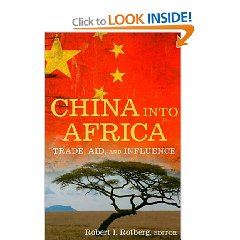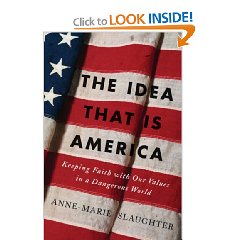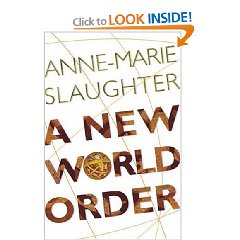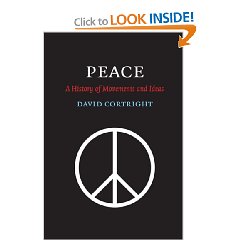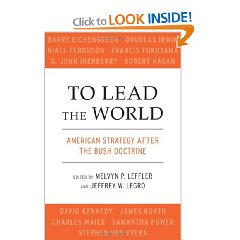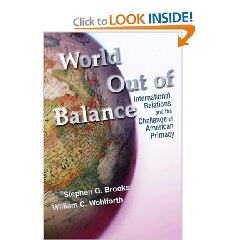
![]() Short Article from the Author, April 28, 2010
Short Article from the Author, April 28, 2010
Linda Polman
It's a real shame this book is not being represented properly on Amazon, in part because the UK publisher is just not geared up for the US audience. This is an important book. Below is the author's summary as appeared in TimesOnline 25 April 2010.
See also:
Policing the New World Disorder: Peace Operations and Public Security
Deliver Us from Evil: Peacekeepers, Warlords and a World of Endless Conflict
Easy money: the great aid scam
Foreign aid is big business and much of it simply vanishes. In a devastating new book, we reveal how millions are lost to waste, corrupt local officials and warlords who realise more blood means more money
In the swimming pool beside the neatly laid tables at the Mamba Point restaurant in Freetown, white women were doing aerobics and the conference hall was hosting a seminar called “The Traumatised Child”. Mantovani's strings played, ice cubes tinkled in our wine glasses and waiters slunk about with steaming platters.
It was summer 2002, a year after the signing of the peace accord that ended Sierra Leone's vicious civil war. We had steak — on the menu at 47,000 leones, or 15. That was over half a month's salary for the waiters serving us, the Unicef representative to my left told me.
For three full years Sierra Leone had been the darling of international donors and humanitarian organisations. Where all that money was going puzzled me, since the United Nations Development Programme (UNDP) had recently declared Sierra Leone, yet again, to be the world's poorest country.
“How do people actually survive here?” I asked my dining companions. They all burst into ebullient laughter. “Juju!” they cried in unison — sorcery. “Come on, let's pop another bottle of wine, guys,” the European commission representative shouted above the jovial hubbub.
Related Links
Haiti hell continues months after quake
Charity insiders know the score. “There's a market for good works, and it's big business. Call it the `moral economy' if you like,” says Nicholas Stockton, a former emergencies director of Oxfam.
We see what looks like one big happy family moving in concert into crisis zones to ease human suffering, but the most powerful link between humanitarian aid agencies is that of commercial competition. It's certainly a long time since the relief of suffering was carried out by people wearing sandals; now they dress in sharp business suits. Organisations that want to remain competitive need to know all about integrated marketing strategies, cost-benefit analyses and competitive incentives.
Those that fail to put in an appearance at each new humanitarian disaster miss out on contracts for the implementation of aid projects financed by donor governments and institutions, and are bypassed by competing organisations that do show up. Whether it's the construction and supply of refugee camps and orphanages, the repair of bombed roads and buildings, the re-education of child soldiers, or the inoculation of entire populations against polio, the non-governmental organisations (NGOs) that send official donors the most competitive bids for the huge amount of work involved will come out on top.
Start-up costs in distant, crisis-hit countries are sky-high. Aid organisations have to recruit and hire staff, rent and furnish housing and office space, and bring in Land Cruisers, aid supplies, satellite dishes, computers, air-conditioners, office equipment and generators. Once at work in a “humanitarian territory”, NGOs have to ensure they can remain active there for at least as long as it takes to earn back their investments.
The big handsome hero of a Nigerian soap shown on television all over west Africa isn't a pilot or a fireman but a project leader for Unicef. In every scene, the broad-shouldered hunk parades about in a dazzling outfit while beautiful women squirm at his feet. After all, a civil servant or local chief attached to an NGO project as an adviser or supervisor can earn a salary dozens of times higher than normal — and local administrators can easily “supervise” many competing projects simultaneously.
The relevance, quality and results of aid projects are not a priority. A co-ordinator for the European commission in west Africa explained to me: “The things local officials weigh up are: will they get access to imported aid supplies, training, study trips, per diems and people needing to rent houses and vehicles? Will an aid project put them in a position to hand out jobs to brothers and cousins? If the answer is no, it may take a very long time to get the necessary permits.”
A story I'd just told him about a wheelchair project in Liberia had made him feel even more dispirited. Medical NGOs had arranged for a batch of wheelchairs to be flown in, to ease the sufferings of war invalids. The chairs turned up in the streets of Monrovia modified into ice-cream carts and mobile shops. Vendors who had nothing wrong with their legs were using the chairs, while amputees went on dragging themselves on their hands and knees through the filthy streets. Local government workers had distributed the wheelchairs among their own kith and kin, who in turn had rented them out to small-time entrepreneurs.
The growing number of aid organisations and the rising value of the aid supplies and services they deliver to warring countries make humanitarian aid an increasingly important supplement to war chests: countries with no other sources of income turn the aid industry, supposedly neutral and unbiased, into a potentially lethal force that the belligerents need to enlist.
Take the $825m aid operation in Darfur, which in 2008 was reckoned by the UN to be the most expensive in the world. In March 2009, the International Criminal Court (ICC) issued an arrest warrant for the Sudanese president, Omar al-Bashir for playing an “essential role” in the murder, rape, torture, pillaging and displacement of a large number of civilians in Darfur. He faces the charge of crimes against humanity — yet the NGOs in Sudan are still the milch cows of Bashir's state apparatus.
An employee of an American NGO explained to me how it works. “It's an open secret among UN organisations and NGOs that the government earns several million dollars a quarter on visas, travel permits, work permits for humanitarians and permit extensions. Entering Sudan costs. Leaving Sudan: ditto.
“To set up an NGO you need approval from the Ministry of Humanitarian Affairs, whose minister was also indicted by the ICC for crimes against humanity. At every stage of the application process, you pay again. It drives me wild that the `humanitarian community' is so spineless in its dealings with the regime. If there was some collective spirit, we might be able to avoid becoming, in effect, sub-branches of the Sudan state.” But there isn't.
Only 30 minutes after the ICC ordered the arrest of President Bashir, the regime retaliated with an order for 13 NGOs to leave immediately. Oxfam GB lost £5m, £2m of it in possessions and accounts. Médecins sans Frontières admitted to having lost 2m (£1.7m). But none of the NGOs or the donor governments protested — they all hoped to be allowed to return to Sudan.
Meanwhile, between 2001, when the war on terror began, and 2008, more than 60 donor governments allocated a total of more than $15 billion to aid for Afghanistan — but exactly where the money ended up is unclear. Neither the donors nor their NGOs dare to visit the projects they finance. The result is an unfathomable channelling of aid billions that is highly susceptible to fraud.
Clinics never actually built, girls' schools where only boys are taught — everyone in Afghanistan can give examples of aid projects that have been financed but not realised. The majority of western NGOs never venture outside Kabul. Instead, they subcontract local and other NGOs to implement their projects, which in turn engage further subcontractors. A total of four intermediate organisations, each creaming off a portion, is common. Steadily seeping away, project finance passes from hand to hand until finally someone gets down to bricklaying, carpentry or ploughing. In the intervening stages, effective supervision of budgets is impossible.
CorpWatch, an independent research institute that investigates and exposes corporate fraud and corruption around the world, eventually managed to trace what had happened to the $15m USAID had earmarked for the building of a road from Kabul to Kandahar in the south. The money turned out to have been transferred from USAID, via the UN, to an American company that hired a Turkish roadbuilder. Each intermediate layer absorbed between 6% and 20% of the project funding, so that in the end only cheap, inferior materials could be purchased. According to CorpWatch, the stretch of tarmac that resulted was barely any improvement on the unsealed road it replaced.
At any given moment, several thousand aid projects are under way in Afghanistan. Jean Mazurelle, former director of the World Bank in Kabul, estimated that 35%-40% of all international aid to Afghanistan is “wrongly spent”. “In Afghanistan, the wastage of aid is sky-high: there is real looting going on. In the 30 years of my career, I've never seen anything like it,” he said.
When asked, aid workers and donors naturally say they control what happens to the money. But an Afghan accountant who carries out spot checks on control methods for USAID thinks this is highly unlikely. “I can tell one Afghan's handwriting from another's, but foreigners only see squiggles and dots. Sometimes I'm shown 150 receipts with the same signature,” she said. And photographs of USAID projects? “I sometimes see pictures of exactly the same project with different donors. Aid groups are happy to be financed three times over. After all, the donors don't come and look.”
This systematic lack of control of aid funding has been nicknamed “Afghaniscam”. Not only do Afghan racketeers rake off aid money unhindered, but in some areas Taliban fighters are able to use unsupervised aid funding to strengthen and expand their popular support.
The 21st-century aid business is booming as never before. And it's increasingly lucrative — which is why the 2001 announcement that Sierra Leone had once again been named the world's poorest country was the occasion for a festive gathering in Freetown. The poorest countries, you see, are eligible for enormous, special international aid programmes.
The cream of Freetown society had gathered to toast this dubious first prize in a conference room at a recently opened luxury hotel, the property of a Chinese investor. The vice-president handed a copy of the UNDP report to his president, “Pa” Kabbah, who waved it triumphantly. “Nice hotel, this,” the vice-president said. “But it gives foreigners the wrong idea. They'll start thinking we're a country of comfort and luxury.” The guests nodded in agreement.
Further along the same Freetown road is the Mammy Yoko hotel, currently serving as the HQ of the UN mission in Sierra Leone. That day, negotiations about a ceasefire were taking place there between the rebel movement, the Revolutionary United Front (RUF), and donor governments.
The RUF delegation seemed to consist of wiry teenagers. A month ago, they had still been prowling the bush; now they strolled in oversized western suits to the UN dining room. Now and then, they slapped each other on the back and laughed loudly, the way they'd seen important international functionaries do. The coastal strip, a quarter of the country, was under the control of UN blue helmets. The remaining three-quarters of Sierra Leone, a region of jungle and diamonds, would be left in the hands of at least four warring parties until an accord was signed. No matter: the international peace negotiators were more than prepared to meet RUF demands, since donor governments want to see results.
Many experts dismissed the warriors in Sierra Leone's bush as drug-fuelled maniacs, but some suspected that a rational, calculated strategy lay behind their destructive frenzy, which left 200,000 dead. They suggested it was a deliberate attempt to drive up the price of peace.
From the viewpoint of the warriors, the logic of the humanitarian era is simple. Without violence and devastation, no aid. And the more ghastly the violence and the more complete the devastation, the more comprehensive the aid.
© Linda Polman 2010 Extracted from War Games: The Story of Aid and War in Modern Times by Linda Polman, published by Viking at £12.99. Copies can be ordered for £11.69, including postage from The Sunday Times Bookshop on 0845 271 2135.


